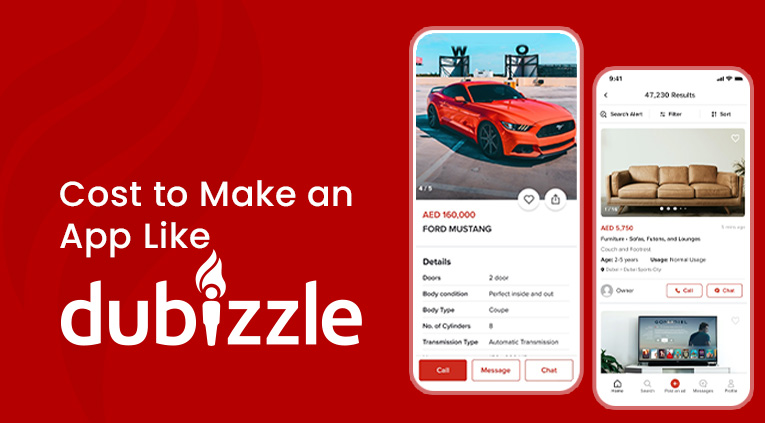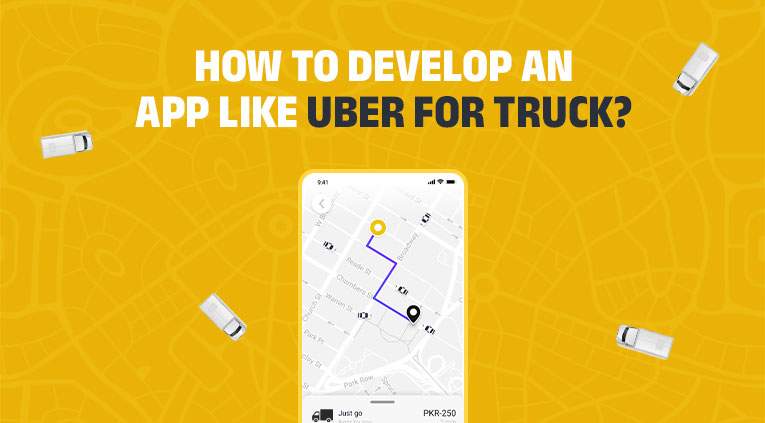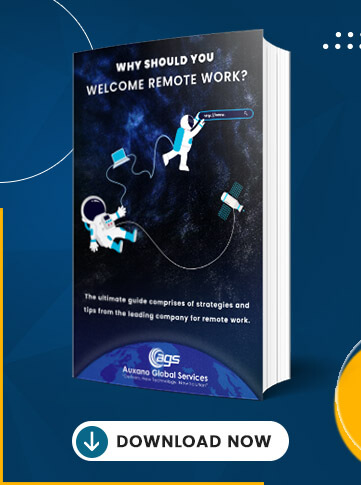Have you always been fascinated by developing a decentralized application (DApp)? Looking for the Best Decentralized Application Development Company to develop a dApp for your business, you must know in-depth about dApp.
Therefore, in this article, we will discuss some information regarding the same and provide you with complete details to let you know if you should build your startup around evolving blockchain technology.
From how to design a user-friendly DApp to choosing blockchain technologies for your project, this guide will ensure that your dreams of building a new DApp come true!
What is Blockchain?
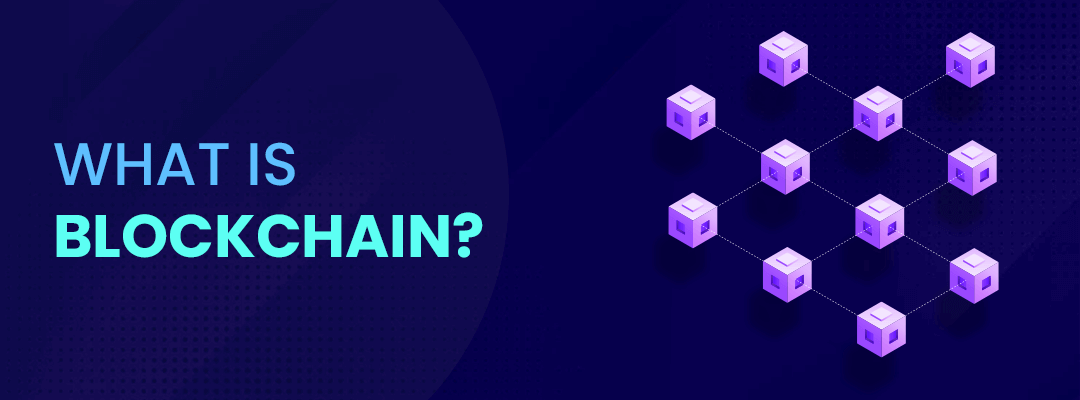
Blockchain is a decentralized public ledger of all cryptocurrency transactions. Every node or user on the network has a copy of the Blockchain, which is updated and maintained through consensus. It was created to allow digital currency to be sent, received, and stored without third-party intermediaries such as banks or governments.
It is a distributed database, which means it is entirely decentralized and has no single owner. Instead, each node on a blockchain network holds a copy of the entire Blockchain, downloaded automatically upon joining the network. This makes it open and available to anyone on the internet, anytime, and without restriction.
You can think of a blockchain as simply an automated book-keeping machine that records everything in real-time. It’s capable of many things, from keeping track of simple transactions to running complex computer programs.
The history of blockchain technology goes back to the 1990s. The term was first used a decade later, in 2008, and even then, it referred to the underlying bitcoin protocol. In 2009, a group of independent software developers gathered to participate in an open-source project to create a new digital currency for the internet. The product was released into the wild under the name bitcoin in 2009 and has since become one of the most important inventions in modern times.

Blockchain can be used for many use cases, from facilitating secure transactions between parties to providing low-cost financial services to citizens.
Decentralized applications (dApps) are top-rated within the realm of Blockchain.
Why are they so popular?
The success of Bitcoin has demonstrated that Blockchain can be used to do things that have never been done before. For example, when someone creates a new blockchain-powered app, basically just a piece of software, it’s like introducing an entirely new paradigm for how humans organize and interact.
Since the release of Bitcoin, hundreds of thousands of developers worldwide have designed their cryptocurrency and created millions upon millions of digital wallets. Although most coins are still in their very early stages, many dApps are fully functional today and have already proven to work better than centralized apps in many ways. As a result, many more incredible decentralized applications will blossom in the coming years.
Look for Dedicated DApp Developers For Hire: Continue reading to learn how to use blockchain technology for your business.
What is DApp?
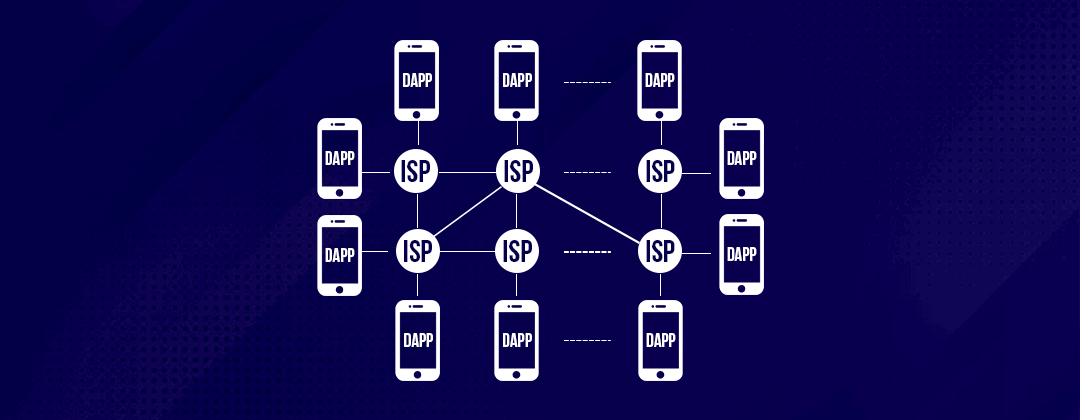
Decentralized apps ( DApps ) are open-source applications that run on the Blockchain; they don’t depend on any central entity for their functioning. Instead, DApps can be built for many purposes, such as financial applications, online marketplaces, online games, voting and politics, social media platforms, and many others.
DApps are challenging to understand for non-developers. Here is a simplified explanation of what a DApp is. Imagine that you want to build an app for your favorite football team. As in any other project, prepare the source code and start writing the code yourself. Then you make a website for your new app (let’s say it’s called “Football Team Manager”), but all the necessary features on it and choose which parts will be featured on the main page of your website (probably just the ones related to signing up new users).
Functioning of DApps:
A dApp is powered by backend code, written using a high-level programming language. Please think of this as the code that powers your app’s features and how it interacts with the user. For example, the backend code uses a blockchain to record transactions, which are all encrypted in the form of data.
DApps have many advantages over traditional apps:
Dapps eliminates intermediaries and third parties, making them fast, instant, and scalable. Whether you’re sending or receiving funds, Dapps operates entirely transparently. Dapps do not have to deal with companies who may not share your interests, such as banks and credit agencies.
Bespoke Decentralized Application (DApp) Development Solutions:
If you want to make the most of blockchain technology, you can take advantage of our development team’s custom-built decentralized applications (DApps). In developing DApps, there is a need to be on top of the latest trends and developments in blockchain technology. Our team closely monitors new developments in the industry and uses them for DApp development. We ensure that only the best is built for our clients.
How do we build our DAPPs?
We at AGS have expert developers in Blockchain and other emerging technologies. As one of the best software development companies, we have an unmatched experience regarding the latest cutting-edge technology built into secure and highly scalable applications. In addition, our team has vast experience working with technology companies, startups, and organizations to automate business processes and improve efficiency.

We aim to build a decentralized application that becomes a world-class blockchain platform for developing new apps. Our mission is to create an ecosystem of high-quality DApps that can inspire and empower millions of people worldwide by providing them with opportunities to use blockchain technology and cryptocurrencies.
Key Features of dApps:
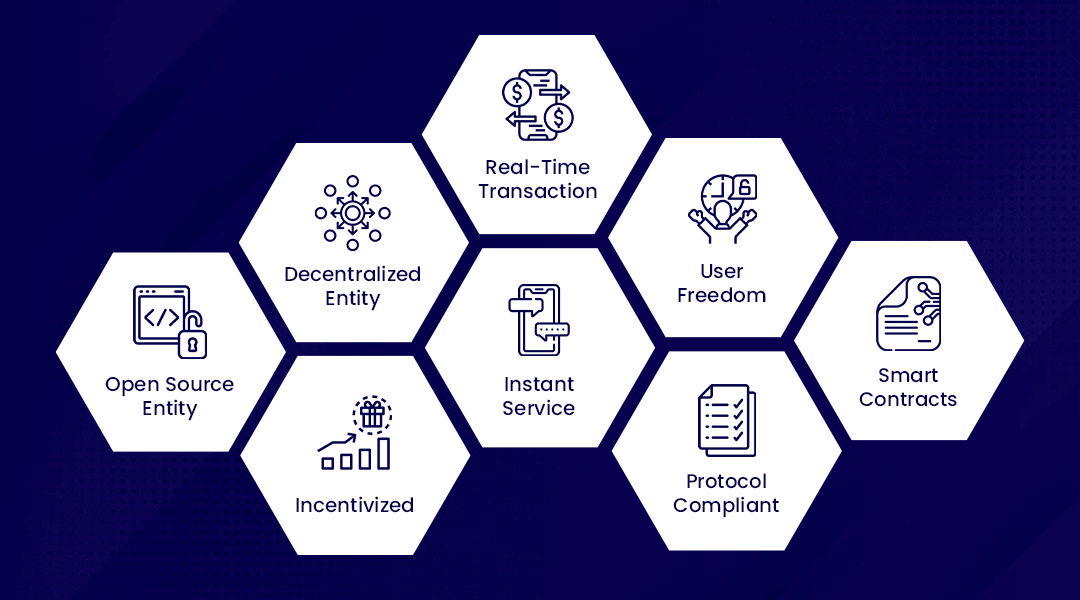
Open Source Entity: A dApp is open source, meaning anyone can see the code behind the dApp. Anyone can see how and why the dApp works the way it does. Transparency is one of the most significant advantages of using a dApp.
Decentralized Entity: All contributions to the project are made collaboratively by all participants on a blockchain without centralized control or a single point of failure. The idea here is to create an environment where smart contracts and digital currencies work similarly to money in a conventional economy, with some key differences: trustworthiness, anonymity, cost-effectiveness, and security for users who choose to take advantage of them.
Incentivized: A project’s success depends on the participants’ actions. For example, workers on a network receive incentives in tokens and are committed to the platform by their contribution. With a successful project, everyone is more likely to join in the future not just because they get free digital tokens as rewards but because they want to reap similar benefits – such as increased social capital and access to new markets.
Real-time Transaction: Dapps work with real-time transactions; depending on the type of dApp you build, it can be instantaneous or involve several steps.
Instant Service: Dapps make services possible that were not possible before. Examples include instant payment and micro-transactions. For example, a ride on Uber or a purchase on Amazon can happen directly using your cryptocurrency wallet. You do not need to wait for the transaction to clear or for the currency exchange rate to reach an acceptable level – you pay exactly what you want when you need it.
User Freedom: Dapps allow users to interact with each other, regardless of location or device; they also have no central point of failure like banks, governments, or providers of digital services such as telecoms companies and ISPs.
Protocol-Compliant: Dapps are built on open protocols and standards, which makes it easier to add new applications and services, launch a new project and integrate with other systems.
Smart Contracts: Dapps are powered by smart contracts that allow for the creation of applications in which all data is stored on a blockchain or distributed ledger. This means that Dapps can be fully decentralized and autonomous and operate without third-party intermediaries, central servers, and service providers. Smart contracts control the transfer of digital currencies in a particular business process and are self-executing once the pre-set conditions are met. With an Ethereum smart contract, we don’t rely on other people’s honesty or integrity to ensure things happen as we expect them.
Differences between Centralized and Decentralized Applications
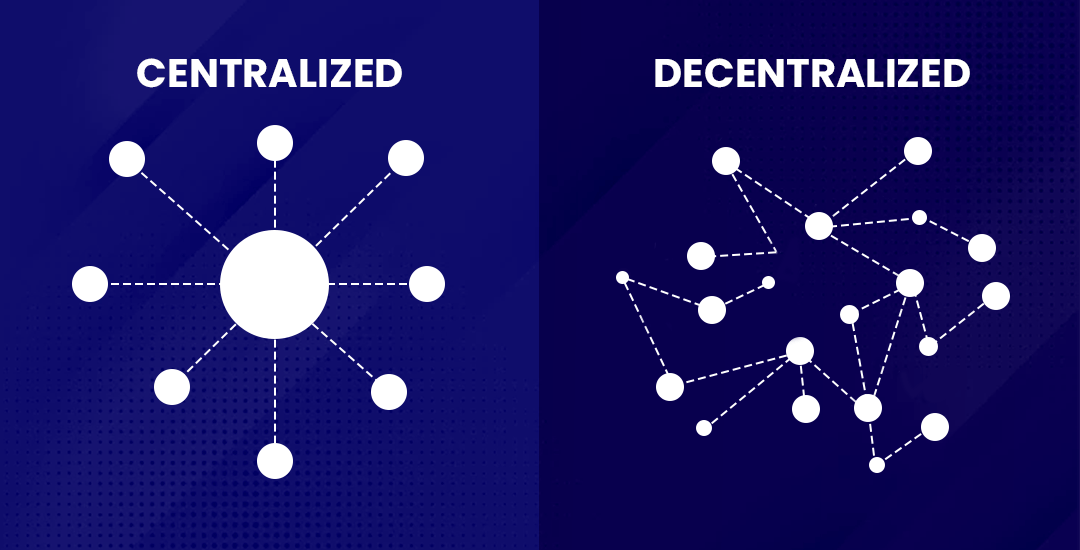
We use traditional apps daily: Google, Facebook, Twitter, Apple Store, Uber, etc. These apps are centralized. This means that they are controlled by one single authority. For example, Apple is responsible for checking the apps you download in their app store.
A decentralized application is a computer program that runs on multiple devices using a peer-to-peer network like blockchain technology. Its main goal is to use distributed storage and a shared database to create applications that do not require any central authority and allow users to control their information and how they interact with each other directly in the same way as it happens within a real-life community.
In a centralized application, data is stored in a database or file system on a single central server that can be compromised. In a decentralized application, data is stored in multiple devices (computers and servers) housed on different networks to ensure the security of the information.
While writing today’s applications, developers must adhere to rigorous requirements; developers must write code that follows specific standards and conforms to approved architectures and programming models. There are some significant differences between centralized and decentralized applications:
Centralized systems have a single point of failure (SPOF). A single point of failure means any time data/information can be altered or access/control has been breached, there is a risk of compromising the entire system.
In centralized systems, only one authority manages the design and sets policies. A centralized system relies on its components to provide security against break-ins and malicious attacks, which means the system can be more vulnerable to threats if any part fails to do its job successfully.
The data in a centralized application is not secured against unauthorized access or alterations. Since the information is stored in a single ledger/location and can be changed by a single administrator, it may not be secure from breaches or alteration by individuals who control this information or the system itself. This kind of system is vulnerable to attack and fraud.
Decentralized applications do not have a single point of failure and are resistant to censorship, tampering, or hacking. Decentralized networks are also more efficient than centralized ones because no data-storage proof is required for every node on the web. Also, users do not need to rely on others; the software is controlled by code, stored on different devices, and distributed across the network. Every participant can access the same application with no central server required for processing and storing data/information, which makes it difficult for anyone – including an administrator – to alter any information or deny users access based on their identity or account status.
Examples of Decentralized Apps
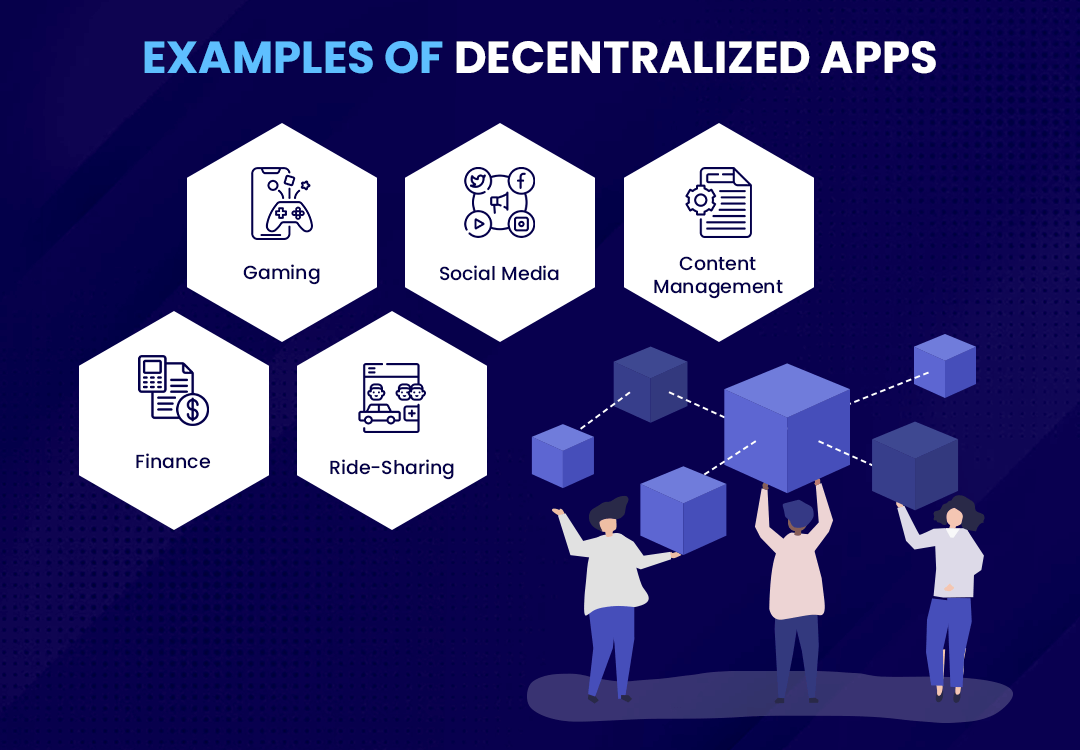
Decentralized apps have different functionality. Think of them like applications on your phone: Some work with media content, some with e-commerce, some with social interaction, and others are less tangible.
Gaming: Dapps are often used for video games that allow users to interact with each other, regardless of location or device. One such example is CryptoKitties. It was built using smart contracts and enabled users to buy and collect digital “cats”.
Social Media: This form of Dapp is used for social media and provides a marketplace for sharing content material such as messages, videos, and pictures. Some examples of decentralized apps include Steemit, Bitmessage, Dtube, Bountysource, dYdX, and WaveMessage.
Content Management: This is where people store their digital content on their devices rather than in the cloud or centralized server. One example is IPFS, which allows users to store information in the network instead of storing the data on a central server.
Finance: Another example of decentralized apps is the cryptocurrency bitcoin, a form of digital currency that allows users to buy/sell goods and services and transfer funds to other users without needing a mediator.
Ride-Sharing: A decentralized service that provides a cheaper, faster, more secure, and easy-to-use booking system than existing services powered by centralized organizations with expensive customer acquisition costs, inefficient processes, and large central offices. One example of a decentralized ride-sharing platform is Arcade City.
Why should you have a Decentralized App (DApp)?

Centralized applications are usually faster to develop. They have a higher-quality user experience and provide more features than any decentralized app. While there is currently a lack of standards and frameworks for building decentralized apps, it is easier for programmers to create them because they are used to how central systems work.
Control Over Data: Decentralized applications allow users to control their data. The user can decide who sees it and how it can be used without relying on traditional centralized platforms such as social media. Using a decentralized application contributes to a more equitable digital world where all users are equally empowered instead of depending on large companies with control over their digital life.
Data Is Protected: No single points of failure in decentralized applications exist, so breaking into the database and stealing information or altering your digital identity is more complicated.
Advocacy For Data Privacy: Usually, centralized applications have an advertising-driven business model that asks users to give up their data in exchange for service; this gives the application owner access to their private information and leaves them vulnerable to identity theft and financial loss. Using a decentralized app, users’ personal information remains protected because only users have access to their data/information, and it’s not affected by any public or private business interests or other third-party entities.
Offers a Direct Peer-To-Peer Model: In the case of decentralized applications, users can interact directly with each other without using third parties such as payment processors, merchants, or search engines. This allows users to bypass intermediaries and their fees.
Provides Global Access: Decentralized applications have no central authority or server, meaning they can be accessed from anywhere in the world. Transactions are processed using the atomic cross-chain method, where nodes confirm transactions independently. This means that users are free to choose what to do with their data and is not controlled by any single entity such as advertisers, governments, or even themselves.
Cost Of Developing a DAPP
The initial costs of developing a decentralized application are high. An initial prototype may cost between $60k and $80k. In the future, DAPP development will become more affordable as the technology becomes more popular. Besides, in some cases, a decentralized application can be cheap to build. You might have to pay a few dollars to develop a digital currency wallet. When you hire AGS, you get more than 40% more value with a complete end-to-end solution.

There are various factors that impact the cost of DAPP building. One of the factors is the programming language that you use for application development. Programming languages like Go, Python, Solidity, and Lisk are used by developers to create decentralized applications. The cost of hiring a developer who knows these programming languages will vary according to his/her skill, experience, efficiency, and location.
The second factor is how much time it takes to design an actual system that can enable the decentralized application to function correctly. An experienced programmer will take more time than a student or a beginner because a professional programmer is more efficient at creating a solution in advanced technology such as blockchain that provides more room for experimentation without creating bugs or bottlenecks in the system.
Hence, the cost can be considerable, depending on the number of hours you have to pay your developer and the complexity of your application. If you have an ambitious project that needs to be built but is not willing to shell out huge amounts of money, you can save money by hiring us as your developer.
Why should you hire us for custom development of Dapp for your business?
With our Custom Decentralized App Development Services, you can build a decentralized application from scratch and launch it as a part of your business model. This is the fastest way to implement Blockchain into your business processes to take advantage of decentralized applications’ benefits. Another reason you may want to go for Dapp Development is that it helps you become an intelligent gatekeeper by keeping data in your own hands, choosing which services will access it and how they do so, and giving more control over how users can interact with each other.
Hire the Best DApp Developers to build your DApp for success. We have an excellent team of experts in Blockchain development and cryptocurrency who can help you with your project. We will analyze your project’s problem and suggest the best solution to suit your needs. Based on our discussion, our DApp Development Team will develop a DApp for you and guide you with a proper roadmap. This will give you an idea about how it lays out and what is expected of you so that when we start working on it, it’s already in line with everything we discussed earlier. We are working towards building such a tremendous decentralized application because our expertise can be applied to many other areas if we see fit.
Conclusion:
Blockchain technology is advancing rapidly, and its ability to store, transfer and transact data has the potential to revolutionize the financial industry. It is a growing market worldwide, and a team of custom decentralized application developers can help you with this project. This article discussed the benefits of developing decentralized applications and why it’s necessary for building a successful business.
By now, most businesses are aware of the emerging power of blockchain technology as it is making its way into legacy industries such as finance. However, there is no denying that this new data storage and processing form will transform the global economy and enable companies to do more with less. The significant benefit of decentralized applications on blockchain technology is that they are completely transparent, secure, and fully decentralized. This makes them more efficient than centralized apps by making it more difficult for hackers to infiltrate the system.
We believe Blockchain’s evolved capabilities will substantially increase the value of products for companies, customers, and consumers. This innovative technology could change how we engage in business and transact our daily lives forever.
We hope that this blog has given you a better understanding of how to develop decentralized applications. If you have any further questions, please contact us.
Frequently Asked Questions
-
1. What is a Decentralized Application (DApp)?
A decentralized application is an application that exists on the Blockchain and has its backend code running on an existing blockchain network. They are developed with smart contracts, which live on the blockchain network.
-
2. Why use a Decentralized Application?
A decentralized application (dApp) offers several advantages over traditional applications. First, it mitigates single points of failure, data loss, censorship, and outside interference because it is run by all the people using that Blockchain in a peer-to-peer manner and will not be controlled by any central agencies or authorities. This enables dApps to be decentralized and distributed among multiple providers and users.
-
3. Can a Decentralized Application be used in our business?
Blockchain technology is undoubtedly emerging as a game-changer in an industry with global reach. However, when you consider that there are many government agencies, financial institutions, corporations, non-profit organizations, and other sectors of the economy that are already investing in blockchain initiatives, it becomes apparent that it is inevitable that Blockchain will transform our lives in myriad ways. Due to these factors, we believe this form of data storage and transaction processing has the potential to radically change the way we engage in business and transact in our daily lives for years to come.
-
4. Why hire custom DApp developers for your project?
Decentralized applications are essentially created by putting blockchain technology to use in a wide variety of applications. Many advantages can be gained when you integrate blockchain technology into your business, including censorship resistance, transparency, and security.
-
5. Is it safe to build a decentralized application with our team?
Yes, we have a team of Blockchain experts with extensive knowledge of the subject matter and extensive experience working on several successful projects across multiple verticals. We have been working with clients since 2016 and have gained valuable insight into the successful implementation of the technology in several businesses. Top clients trust our technologies because we offer quality results at competitive rates.



